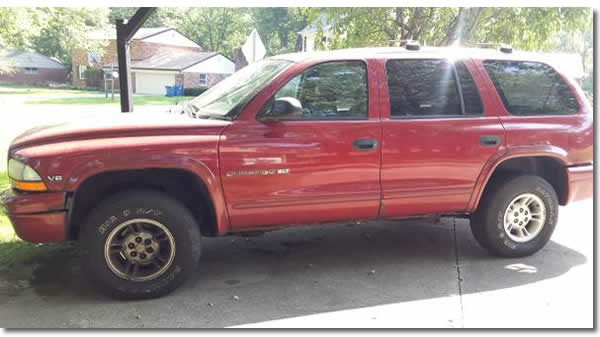
My Dodge started overheating of all a sudden a month ago. I put in a bottle of coolant and that worked. But today it overheated again and I had to put another bottle of coolant. What would cause the loss of coolant?
Loss of coolant
In most cases loss of coolant is caused from a leak in the cooling system. As a result here are typically two kinds of coolant leaks, external and internal. Coolant appearing on the ground underneath of the vehicle is an indication of an external coolant leak.. Internal coolant leaks are more difficult but usually accompanied by white exhaust smoke. Once you have determined if your coolant is leaking internally or externally you can begin diagnosing the cause.
Above all do not use coolant additives that are claimed to improve engine cooling.
COOLANT PERFORMANCE
The required ethylene-glycol (antifreeze) and water mixture depends upon climate and vehicle operating conditions. The coolant performance of various mixtures follows:
Pure Water-Water can absorb more heat than a mixture of water and ethylene-glycol. This is for purpose of heat transfer only. Water also freezes at a higher temperature and allows corrosion.
100 percent Ethylene-Glycol-The corrosion inhibiting additives in ethylene-glycol need the presence of water to dissolve. Without water, additives form deposits in system. These act as insulation causing temperature to rise to as high as 149°C (300°F). This temperature is hot enough to melt plastic and soften solder. The increased temperature can result in engine detonation. In addition, 100 percent ethylene-glycol freezes at -22°C (-8°F).
50/50 Ethylene-Glycol and Water-Is the recommended mixture, it provides protection against freezing to -37°C (-34°F). The antifreeze concentration must always be a minimum of 44 percent, year-round in all climates. Engine parts may be eroded by cavitation as a result if the percentage is lower. Maximum protection against freezing is provided with a 68 percent antifreeze concentration, which prevents freezing down to -67.7°C (-90°F). A higher percentage will freeze at a warmer temperature. Also, a higher percentage of antifreeze can cause the engine to overheat because specific heat of antifreeze is lower than that of water.
Therefore make sure you do not put coolant directly into the radiator at full strength.